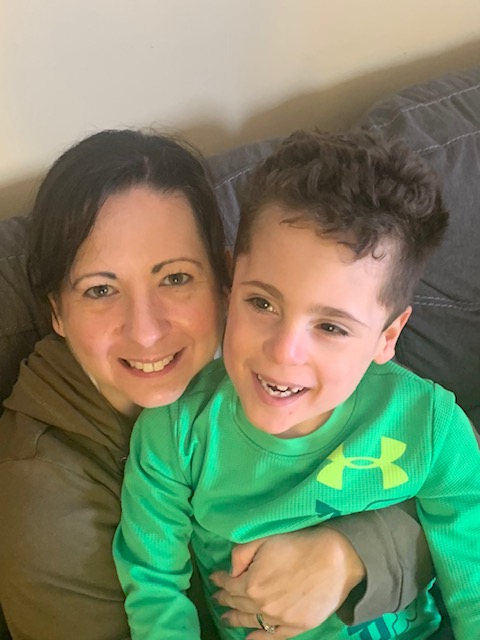Denying Preventive Treatment Can Have Life-threatening Consequences
October 22, 2019
There we were, in the same hospital where my son Deskin’s twin brother, Jake, passed away at just two days old. Fear washed over me. I looked at my husband, “How did we end up back here?” I asked.

It all started with our insurance company. They denied preventive treatment for respiratory syncytial virus, or RSV, when Deskin was three years old. In previous years, Deskin had received the treatment, safeguarding him from the deadly seasonal virus. But at three years old, he no longer qualified, according to the guidelines.
We were told our only option was to pay for it out of pocket – thousands of dollars for monthly doses throughout RSV season. I’m a teacher and my husband works in commercial insurance. We simply didn’t have tens of thousands of dollars lying around. So I tried to convince myself that Deskin was stronger, that he was healthier.
He was, in a way.
Deskin had been born in the 24th week of gestation and spent nearly 10 months in the hospital before being released with a tracheostomy tube, ventilator and oxygen. He progressed year after year and, at age three, he started preschool with a nurse accompanying him every day.
The school did an excellent job of telling us if another kid was sick, and we kept Deskin home at the first sign of a sniffle. We took every possible precaution to keep him well. We cleaned surfaces, we washed hands and we disinfected toys. But just before Thanksgiving, he started to get ill.
Our boy, who had been almost totally weaned off of oxygen, needing just 1/16 of a liter per minute, now needed four liters per minute. A visit to the doctor confirmed he had RSV. My heart sank. I knew how serious it was for any toddler, let alone one with Deskin’s health history.
He was admitted to the hospital. The doctor wanted to put Deskin back on a ventilator, something my husband and I resisted because we knew Deskin didn’t like the machine. We relented knowing it was what he needed. When Deskin didn’t fight the ventilator, I was terrified. It suddenly hit me how very sick and helpless he was, how precarious our situation had become.
Soon, diagnoses of pneumonia and rhinovirus followed. Deskin’s fever spiked. For nine days, we watched our son get nebulizer treatments, multiple chest x-rays, rounds of steroids. We helped hold him down for procedures and comforted him as he had reactions to new medicines. One made his eyes red and swollen shut.
It was all scary for my husband and me, traumatizing for Deskin. And it was certainly not how our family wanted to spend Christmas.
When he was finally released, our home was once again filled with medical equipment and supplies we’d gotten rid of long ago. There was in an increase in our home nursing services too.
I was so thankful Deskin survived. But amid my joy was frustration. All of the heartache and hundreds of thousands of dollars of medical expenses could have been prevented. Our insurance company’s unwillingness to provide a critical treatment wound up costing it – costing all of us – much, much more.
Insurance guidelines built on generalities hurt children like Deskin. Turning three didn’t make Deskin’s still-fragile lungs magically strong enough to withstand RSV. The special health circumstance of kids like him, who remain medically fragile even as they grow older and slowly stronger, who still use a tracheostomy tube, who still require some oxygen, should be considered.
Despite all we went through, I consider us lucky. I know other parents whose stories have a much sadder ending – all because their insurers, like ours, were too rigid to make an exception and cover a treatment that could have saved their children’s lives.
I understand that insurers can’t hand out costly medicines indiscriminately. But neither should they cling to generic guidelines when a patient’s unique circumstances require a different course of care. In the end, health care that acknowledges each child’s needs is the economical thing, the right thing, and the human thing to do.
Julie Ann Burton is a mother, public school educator and advocate for access to preventive RSV treatment for medically complex children.
This post is part of IfPA’s “By All Accounts” blog series. Each month, a different guest author – and a different story – adds a new piece to the common narrative of how insurance practices meant to control costs are instead hurting patients.
Categorized in: Blog


